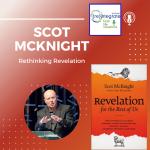By Tim Weinhold (originally published, Jan 25, 2017)
“Mrs. Hughes, I only want to say one thing — that if you are ill, you are welcome here for as long as you want to stay. Lady Sybil will help us to find a suitable nurse . . . I don’t want you to have any concerns about where you’ll go or who will look after you, because the answer is here, and we will.”
Devoted fans will, no doubt, recognize this declaration of commitment as coming from Lady Grantham (Cora) in an especially-heart-warming scene from Downton Abbey, the BBC’s wildly-successful dramatization of the twilight of the British aristocracy. At the time Mrs. Hughes, Downton’s head housekeeper, was waiting to learn whether the lump in her breast was malignant. Downton Abbey had been her workplace and her home for many years. But her place in the home was that of a worker, not a family member. So the prospect of a debilitating disease raised grave questions: ‘If I can’t work, how will I support myself?’; ‘If I can’t work, where will I live?’; ‘If I can’t work, who will take care of me?’ In short, she faced the prospect of both disease and destitution.
Lady Grantham spoke directly to these concerns, assuring her housekeeper that, even if the prognosis was dire, she would not lack for care and succor. She was a valued member of the household and would be treated accordingly . . . to the very end. Upon hearing that, a great weight of anxiety and agitation visibly lifted off Mrs. Hughes.
Lady Grantham’s comments were premised on an implicit covenant: you (employee) provide years of faithful service to the family and we (employer) will provide for you when you can no longer work. This covenant reflected a deep integration of home and workplace — an integration that had been widespread since (at least) biblical times.
“In Greco-Roman culture a household [oikos] was not just a family group or dwelling but the basic economic unit of the community, and it included everyone who lived in or worked at the house or estate. An oikos included immediate and extended family members, slaves, hired servants, skilled workers of various sorts, teachers, and tutors.” In fact, Bruno Dyck, professor at the Asper School of Business at the University of Manitoba, writes in his book, Management and the Gospel: Luke’s Radical Message for the First and Twenty-First Centuries, “Rather than translate the biblical word oikos as ‘household,’ it would be much more helpful and accurate to translate it as a ‘goods and services producing organization,’ or as an ‘enterprise,’ or as a ‘company.'” Speaking broadly, therefore, employees (extended family, other working people, servants, slaves) didn’t merely join an employer, they joined a household — one in which the implicit covenant married lifetime service (for as long as work was reasonably possible) with lifelong provision.
Modern business and its household-centric predecessor have little in common. Nevertheless, modern business has generally operated under the assumption that companies have an obligation to provide for workers in their old age. The Baltimore and Ohio Railroad established as far back as 1884 — at the height of the ‘robber baron’ era of American capitalism — the first pension plan by a major U.S. employer. It allowed workers at age 65 who had worked for the railroad for at least 10 years to receive retirement benefits ranging from 20 to 35% of wages. American Express followed suit in 1889 with its own pension plan.
Corporate (defined benefit) pension plans became widely prevalent in the decades following the Great Depression. By 1980 there were approximately 250,000 such pension plans covered by the U.S. Pension Benefit Guaranty Corporation (PBGC), and in 1985 nearly 90 percent of Fortune 100 companies offered a traditional defined benefit plan to new employees. As a result, a great many of the parents and grandparents of today’s workers “left the workforce with some type of employer-provided income — [covering the entire period] from the time they retired until their death.”
Today fewer and fewer companies are willing to shoulder responsibility for the old-age economic security of their workers. The number of pension plans covered by PBGC has dropped by more than 90 percent — to less than 24,000 qualified plans, and as of 2012, only 11 of the Fortune 100 offered a traditional defined benefit plan to new salaried employees. Today’s workers have, to a considerable degree, been left to fend for themselves. Given that, they may view Lady Grantham’s commitment to Mrs. Hughes with more than a touch of wistfulness.
Jeff Van Duzer, in his book Why Business Matters to God, says God’s perspective is quite different. “An employer must recognize that the full-time employment of an individual uses up that individual’s earning capacity. If it does not yield enough for that person to live on, it violates the personhood of that individual as designed by God.” Van Duzer makes this observation to point out that below-livable wages violate God’s intent. But his argument means, as well, that it is equally a violation to use up the earning capacity of workers without appropriate provision for their old age.
Which is all well and good. But business competition is real, and global competition with companies in lower-wage (and benefits) countries has been the pressing reality for U.S. business for the last few decades — and one of the primary drivers of the abandonment of corporate pension commitments over that same period. Should Bible-believing business people turn a blind eye to the cost-cutting implications of that competition? Knowing that God does not want the elderly dumped into destitution, should faithful business people simply trust that God will, somehow, make an expensive pension plan miraculously turn out well? Is that really the pathway to a biblically-appropriate commitment to one’s workers in the 21st century?
As regular readers of these columns know, there is much evidence that companies who pay and treat their employees well substantially outperform those who don’t.* Given that, maybe a generous defined-benefits pension plan would, in fact, work out well. But maybe not. Scripture in no way promises that noble intentions are a substitute for sound business judgment.
The Bible does, however, point in a very helpful direction. Agriculture was the primary business engine — the principal mechanism for wealth creation — in the ancient world. Which means that ownership of land was synonymous with ownership of the means of production. Not surprising, then, that when God laid out his blueprint for society at the establishment of Israel, he paid a great deal of attention to land distribution, carefully making sure that every family possessed land. In fact, he was so intent on this outcome that he also instituted a Year of Jubilee provision that every fifty years any family that had lost land, whether through misfortune or misbehavior, would have it restored. God clearly believes that broad distribution of the economic means of production is foundational for a successful society.
The company is impressively profitable — enjoying net margins of 5.6 percent compared, for example, to Whole Foods at 3.9 percent, Walmart at 3.8 percent, and Kroger at 1.6 percent. In fact, Forbes says Publix is the country’s most profitable grocery chain. It is also beloved by its customers — occupying, according to the Economist, the number one ranking for grocery stores on the American Consumer Satisfaction Index, a position it has held continuously since the index began. Walmart, by comparison, ranks last.
During the late 1950s, Publix began selling stock to its employees. Then in 1974 Publix established a company-funded employee stock ownership plan (ESOP), to which the company typically contributes stock equal to 8-10 percent of an employee’s compensation. Directly, and through the ESOP, employees now own approximately 80 percent of the company — worth more than $17 billion. (The Jenkins family isn’t doing badly either — with 20 percent ownership, their stake is worth nearly $4.5 billion.) The company also has a generous bonus program and, maybe most impressively, has never had a layoff . . . in fact, according to Fortune, has never laid off a single employee.
So what does this mean for employee pay and retirement savings? According to Publix, a store manager who has worked at the company for 20 years typically earns between $100,000 and $130,000, likely has $300,000 in retirement-program stock, and has received another $30,000 in dividends. In stark contrast, investment firm BlackRock says that either through an employer program or their own savings, “only about two-thirds of American workers have saved anything [towards retirement], and most of them have less than $25,000.”
All of which makes even more impressive what WinCo Foods, another employee-owned grocery chain, is accomplishing for its workers. The company was originally founded as Waremart in 1967 in Boise, Idaho. In 1985 employees purchased via an ESOP a majority interest in the company for $10 million. Since then the business has prospered, growing to 93 stores and nearly 15,000 employees. 2015 fiscal revenues were $6.3 billion, ranking the company number 54 on the list of the country’s largest private companies.
“WinCo arguably may be the best retailer in the western U.S.,” according to supermarket-retailing-industry expert Burt Flickinger. “WinCo is really unstoppable at this point. They’re Walmart’s worst nightmare.” If so, it’s because they operate from a very different playbook.
In contrast to Walmart, WinCo pays well and provides full health insurance to even part-time workers. The monthly premium for a family of four is $42 with an annual deductible of just $200 and a 20 percent co-pay. More impressive still, each year WinCo puts into the retirement accounts of its employees company stock worth approximately 20 percent of their pay. Because of the company’s impressive growth, the value of that stock has, ever since 1985, increased by more than 19 percent per year. The combined result is that employee holdings are now worth close to $3 billion.
What this means for individual workers is remarkable. The WinCo supermarket in Corvallis, Oregon, for example, employs 130 people who together have retirement savings of nearly $100 million dollars. In fact, several of the longer-employed workers in Corvallis have individual retirement balances above $1 million. Company-wide, WinCo has more than 400 front-line employees — check-out clerks, shelf-stockers, those who order inventory, etc. — with “more than $1 million in their ESOP accounts and hundreds of retirees similarly well set.” In the current fiscal year WinCo expects to pay out approximately $200 million to retiring workers cashing out their ESOP accounts. Over the last seven years, the company has paid retirees almost $1 billion.
The economic story has played out rather differently for twin sister Deborah. According to Forbes, Deborah also worked hard: “three years at the regional telephone company; some time at a department store and at a pharmacy; finally at a doctor’s office for 17 years. By 2008, Deborah, quite typical for someone in her position, had about $30,000 in a retirement account.” But the market collapse cut that in half. Referring to her retirement prospects now, Deborah says, “I’m 42. I’ve had to start over.”
With most companies having abandoned traditional pension commitments, Deborah’s plight has become, increasingly, the plight of American workers generally — heading inexorably towards a retirement cliff with woefully inadequate resources. Publix and WinCo demonstrate that there is another way — one that provides well for the old-age needs of workers without burdening companies with pension commitments of unknown amount and duration. It is the pathway of ‘shared rewards’ . . . a pattern for business that God made clear in Scripture millennia ago.
Following this path, both Publix and WinCo have prospered for decades at a level that is the envy of their competitors. Simultaneously, they have provided for the retirement security of their workers far beyond what is normative for American business. The trajectories of both companies emphatically illustrate that God’s shared-rewards principle for business is both noble and prudent, both good and wise.











